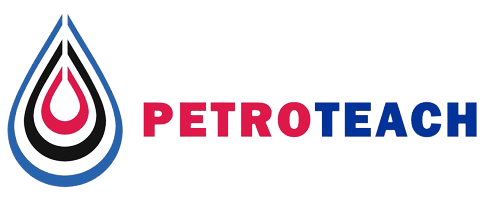DAT 601
Improved Reservoir Modelling Using Artificial Neural Network
This 3-day training course will focus on Artificial Neural Networks (ANN) and how this can assist in predicting different reservoir parameters in uncored wells.


This 3-day training course will focus on Artificial Neural Networks (ANN) and how this can assist in predicting different reservoir parameters in uncored wells.

| Code | Date | Location | price (€)* |
|---|---|---|---|
| DAT 601 | 2 - 4 Dec 2025 | Online | 1390 |
| DAT 601 | 4 - 6 Nov 2025 | Abu Dhabi | 2990 |
| DAT 601 | 15 - 16 May 2025 | Online | 1390 |
| DAT 601 | 15 - 17 Apr 2025 | Stavanger | 2990 |
* Prices are subject to VAT and local terms. Ph.D. students, groups (≥ 3 persons) and early bird registrants (8 weeks in advance) are entitled to a DISCOUNT!
Artificial neural networks combined with good geological input data can greatly improve predictability of reservoir parameters and produce more reliable reservoir models. Geological and petrophysical control on data handling and interpretation of results is essential in achieving good results. This 3-day training course will focus on Artificial Neural Networks (ANN) and how this can assist in predicting different reservoir parameters in uncored wells. Participants will learn how to use the Tiberius ANN software and associated macros. A basic introduction to ANN will be given, followed by data gathering, data preparation, running and testing the models, interpreting the results, and a discussion on possible pitfalls. The aim is that course participants will be able to run their own ANN model. This will be achieved through several exercises that cover the entire process from gathering input data to developing, interpreting and testing the models. This will be followed by blind-testing the models against a new well. Finally, the developed ANN model will be applied to uncored wells to improve regional predictability of reservoir parameters.
o Introduction and simple explanation of artificial neural network.
o Input and output variables.
o Importance of correct depth shifting.
o Importance on petrophysical evaluation of input wire-line logs.
o Hidden non-linear neurons – selecting the ideal number of neurons.
o How to avoid under/over-training of the network.
o Achieving least test data fitting error.
o Predictability vs. accuracy.
o Application of developed ANN models to wells with missing input variables.
o Different predictive models: Regression and Classification.
o Installation of software and associated macros.
o Overview of the Tiberius software.
EXERCISE: Regression ANN.
Case study from producing field
o Pore-type classification.
o Pore-type control on poro-perm relationships.
o Brief introduction to pore-type control on saturation heights.
o Classification of ANN analysis.
o How to handle multi-output data.
o Average hit scores vs. average raw data scores.
o Application of macros developed for pore types.
o How to modify the macros to handle other output parameters.
EXERCISE: Classification of ANN.

Arve Lønøy has 37 years of experience as a carbonate geologist within exploration, production/field development, and research. He also has 6 years of experience on siliciclastic North Sea reservoirs. His main specialty is carbonate sedimentology and diagenesis with special emphasis on reservoir characterization. He has developed several proprietary techniques for static reservoir modelling. Arve published (AAPG 2006) a new pore-type classification system that is applied in prediction of permeability, effective porosity, saturation heights and HC contacts. The predictions are further aided by the use of artificial intelligence, using a time-efficient methodology that he has developed. This new methodology for reservoir characterization, and how it is applied in reservoir modelling, was approved by Beicip-Franlab in 2012 audit.
Geoscientists with a basic understanding of sedimentology, reservoir characterisation and wireline logs.
Intermediate to Advanced
The participants will learn:
o Basics of ANN models
o How to run ANN models using Tiberius software and the associated macros
o Different types of ANN models for different needs
o How to handle multi output data
o Define pore types (data variable involved)
o Handle wireline log data
o Data preparation
o Pitfalls
o Interpreting results
o Model testing
o Application to uncored wells
o How to apply results in static reservoir models
Registration is now OPEN!
* Prices are subject to VAT and local terms. Ph.D. students, groups (≥ 3 persons) and early bird registrants (8 weeks in advance) are entitled to a DISCOUNT!
For more details and registration please send email to: register@petro-teach.com
Would you like a PetroTeach training course delivered at a time or location to suit you?
click for request in house